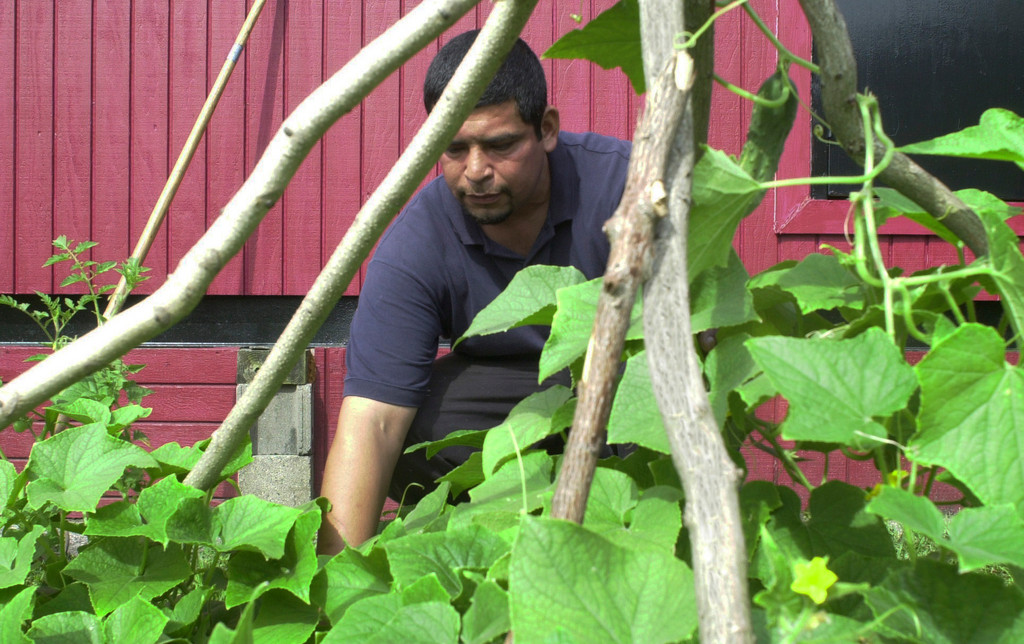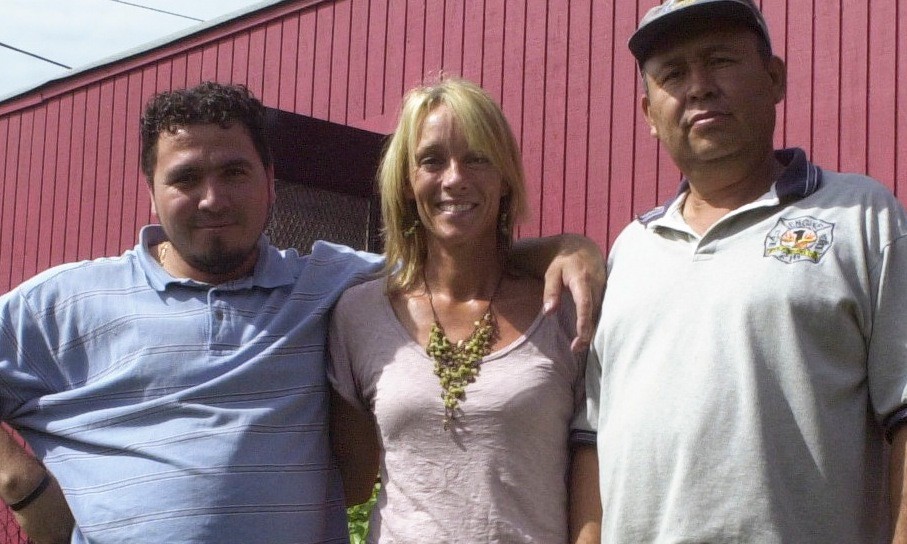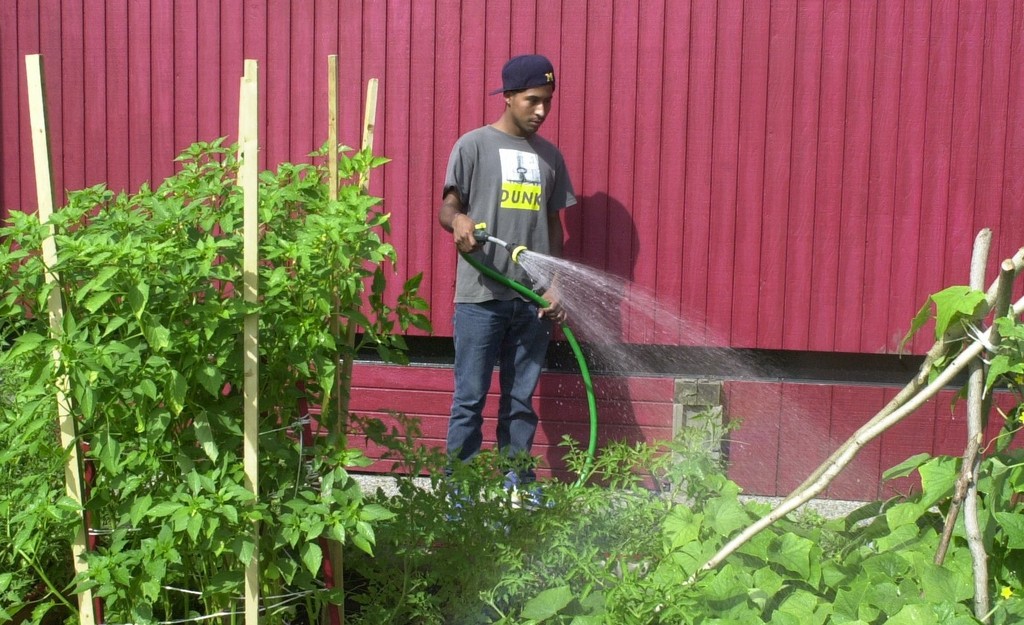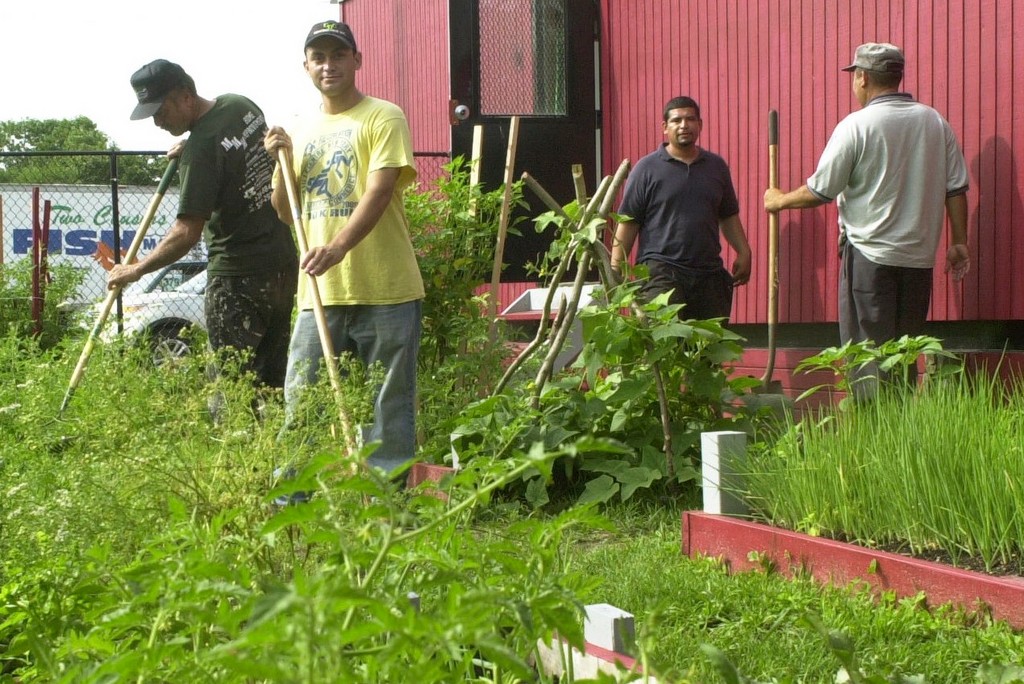Freeport communal garden helps feed day laborers
Merokean expands mission of the Freeport Work Hiring Trailer

On a recent sunny Thursday, Wilbur Sanchez spoke in slow, deliberate English as he pointed out vegetables amid the greenery fanning out around him. Sanchez noted the peppers, tomatoes and cucumbers hanging from tall plants in a red box before him. In a second box to his right were chives, oregano and lettuce. In the middle of the garden, watermelon vines looped in all directions. At the back, cornstalks popped out above still more pepper plants.
“We use the food to cook,” said Sanchez, an immigrant from Nicaragua. “Next year we’re going to make it better. It’s just starting.” He was speaking of the new communal garden at the Freeport Work Hiring Trailer, run by Merokean Liz O’Shaughnessy, 47, who founded a nonprofit organization, CoLoKi Inc. — an abbreviation of compassion, love, kindness — last year to raise funds for and maintain the site.
The trailer, which is made possible in large part by a grant from the nonprofit, Port Washington-based Hagedorn Foundation, provides immigrant day laborers with a warm, dry, safe place to stay while they wait for landscapers and contractors to pick them up for jobs. That, at least, was the trailer’s original purpose when Catholic Charities opened it in 2002. Since O’Shaughnessy took it over in January 2010, she has expanded its mission to include feeding the impoverished workers who stop off at the site.
The garden sits behind the trailer on a plot roughly the size of a suburban backyard, surrounded on three sides by a chain-link fence that was donated by the Anthony Posillico Construction Company of Westbury. With monetary donations from her family, O’Shaughnessy purchased wood this spring to build the boxes that hold the vegetable plants.
The laborers, most of whom are from Mexico and Central and South America, planted the garden in early May, and a handful of workers like Sanchez arrive at 5 a.m. each day –– two hours before the landscapers and contractors –– to water the plants with a hose connected to the trailer’s closet-sized bathroom. The vegetables go into big salads and a pot of chicken and rice to help feed 40 men a day over the summer. (In the winter, the number jumps to 100, according to O’Shaughnessy.)

 64.0°,
Mostly Cloudy
64.0°,
Mostly Cloudy 









